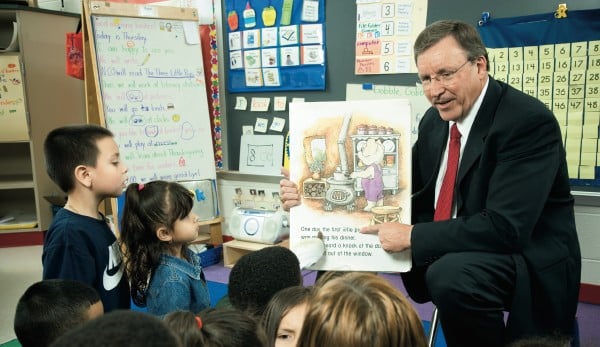Montgomery County was changing when Jerry Weast arrived to become the superintendent of schools in 1999.
In the 1970s, Montgomery County was more than 90 percent white; 20 years later, minorities made up a majority of residents. And the demography of the school population was changing faster than that of the adult population. A school system proud of its achievements with the children of educated parents faced new challenges.
Ten percent of county schoolchildren are immigrants, 34,000 qualify for free meals, and nearly 15,000 are enrolled in English-for-speakers-of-other-languages classes.
Weast was impressed from the start by the county’s confidence. “There’s something to be said for high self-esteem,” he says. The school board and the community were convinced that they could build the capacity to enable every child to succeed in school.
Now nearly 90 percent of the county’s kindergartners are reading before they reach first grade. Montgomery has the country’s second-highest graduation rate for African-American males. Nationwide, 3.2 percent of all African-American students and 1.5 percent of all Latino students who achieve college-level scores on Advanced Placement exams come from Montgomery County public schools.
The son of a woman who taught in a one-room schoolhouse in Kansas, Weast believes that “the best weapon we have is a good teacher.” He’s made it easier for teachers to succeed by reducing class size and increasing academic support in schools where many kids are playing catch-up. But he’s also made it easier to evaluate teacher performance and weed out those who don’t make the grade.
Six fine-arts programs have begun since Weast’s arrival. There are also more magnet schools, including Wheaton High’s Academy of Engineering—a program offering college-level engineering classes—and nearly 6,000 students in International Baccalaureate programs.
Weast sounds more like a preacher than a teacher when he talks about the schools. “Montgomery County is the magic kingdom,” he says. “A kid disadvantaged by poverty can walk into Harvard from here. We can adapt a program for a kid who can’t see, hear, or walk, and he can make it to Harvard. This is where miracles happen.”


















